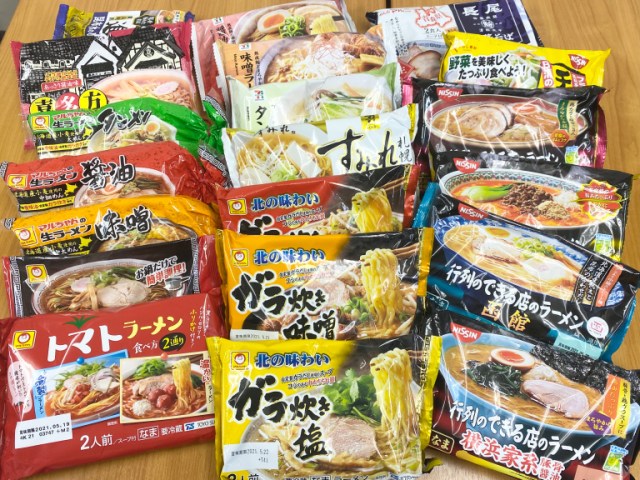
Today in the SoraKitchen, we’re taking our love of ramen to its illogical conclusion.
When making ramen at home, most of the time your first instinct is going to be to make either cup ramen or use a pack of dried noodles. However, just like you can buy fresh pasta at the grocery store, you can find fresh ramen there too.
▼ The fresh ramen shelf
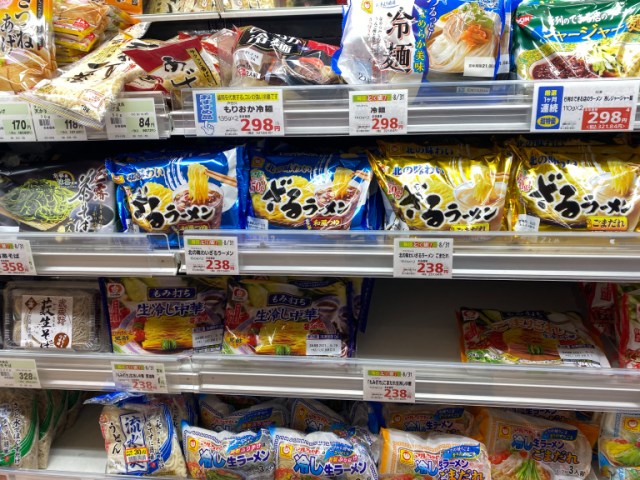
So on a recent supply run for the SoraNews24 office kitchen, our reporter Ikuna Kamezawa decided to stock up on fresh ramen packs, each of which come with their own unique broth stock. After making the circuit of the three closest supermarkets and buying every variety they had, she came back with 19 different kinds.
While this ramen haul already had her mouth watering, it also had her wondering: what would happen if we mixed all 19 packs of ramen together, sort of like our recent mad science curry experiment? Unable to suppress her curiosity, she grabbed the biggest pot in the kitchen, and we set out to make the ultimate ramen. Our ingredients consisted of:
▼ Clockwise from top left: Nissin Foods’ Yokohama Iekei, Tantanmen
Kotteri Soy Broth, and Hakodate Refreshing Rich Salt Broth ramen
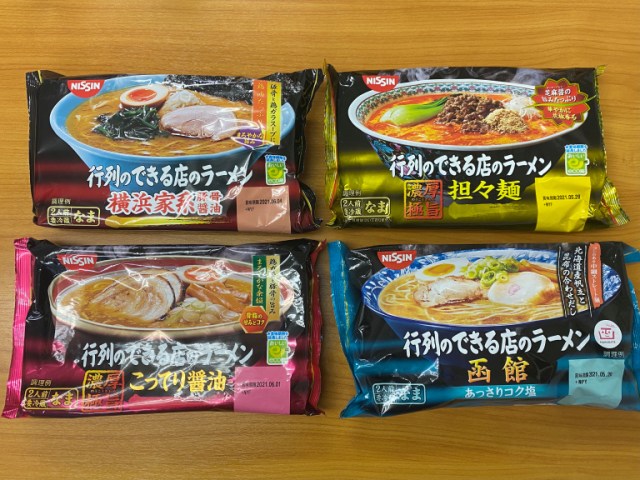
▼ Maruchan’s Kita no Ajiwai Soy, Kita no Ajiwai Miso, and Kita no Ajiwai Salt
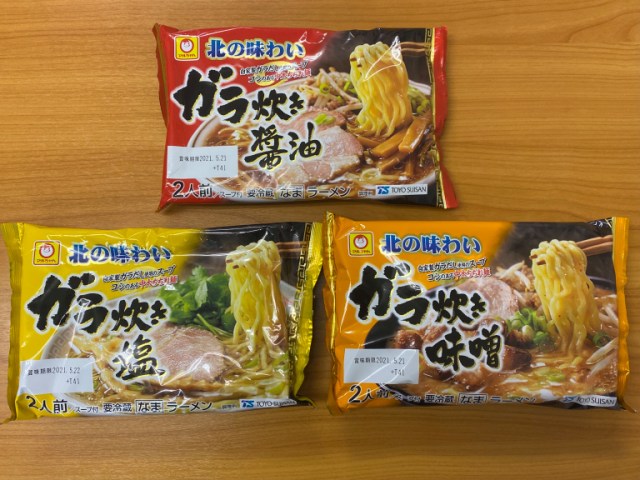
▼ Maruchan’s Nama Ramen Tanmen, Mukashi Nagara Chuka Soba,
Nama Ramen Soy, and Nama Ramen Miso
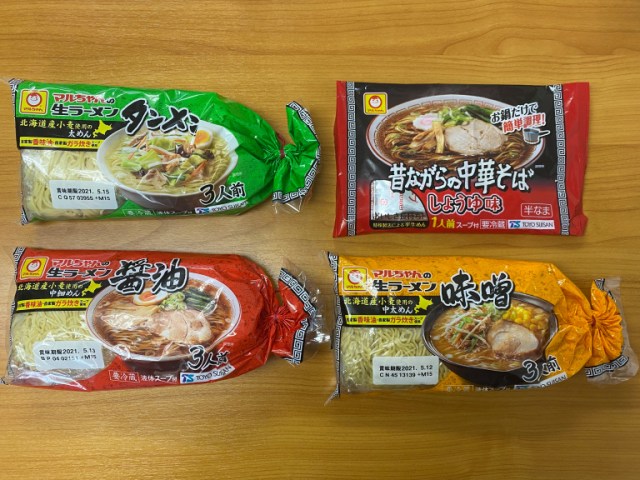
▼ 7 Premium Tanmen, 7 Pemium Soy, and 7 Premium Miso
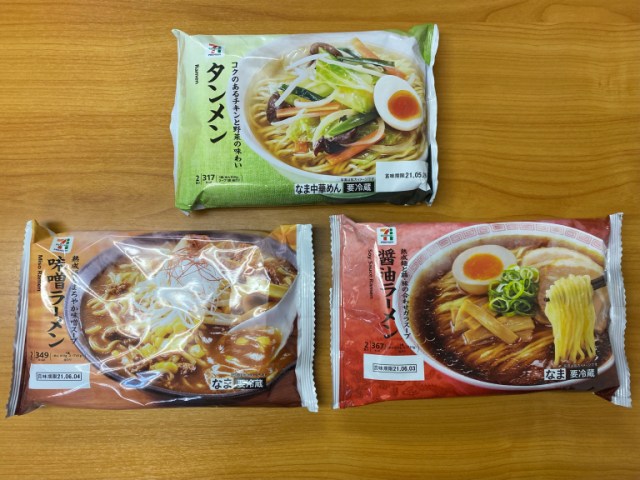
▼ Regional specialty ramen Sumire (Sapporo), Nagao Chuka Soba (Aomori), and
Hakata Ramen (Fukuoka)
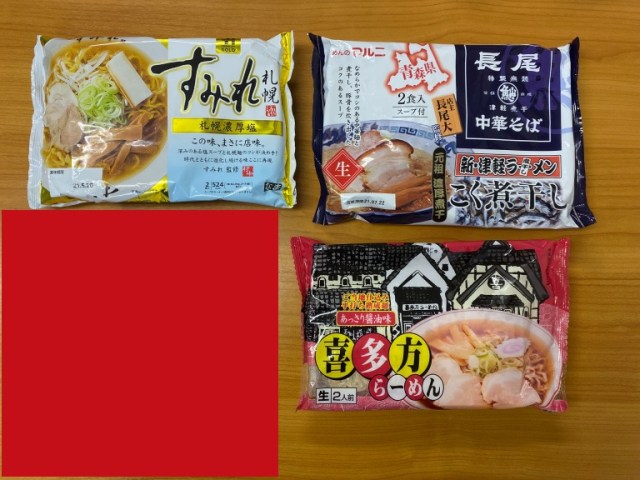
▼ And last, Maruchan Tomato Ramen and Nissin Champon
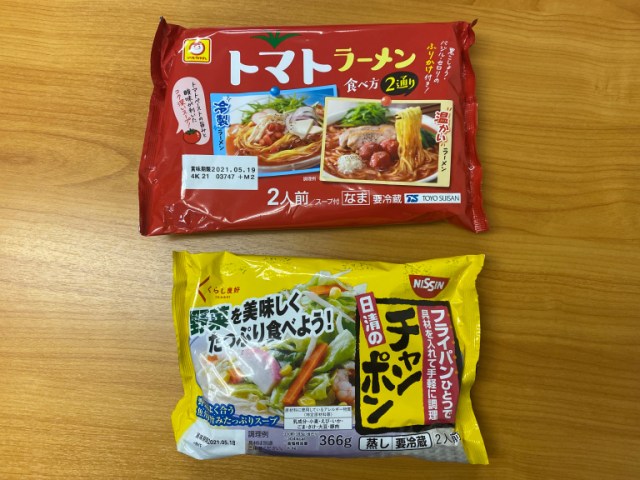
Step one was to figure out how much water we’d need, and adding up the amount from the instructions on all the different packages came to 4.9 liters (165.7 ounces).
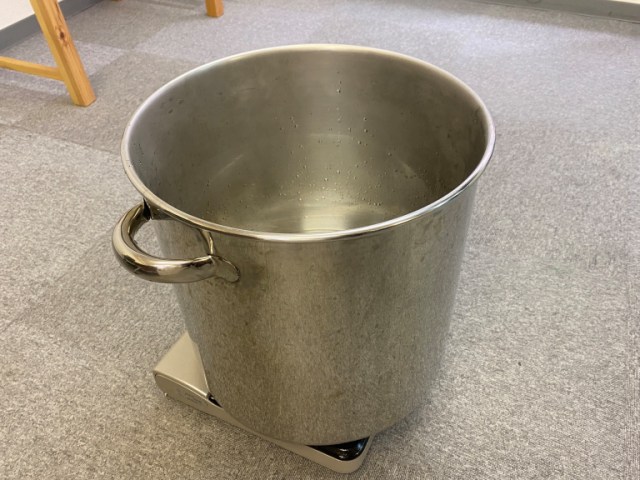
After bringing the water to a boil, we tossed in all the different liquid and powder soup bases that had come with the 19 types of ramen.
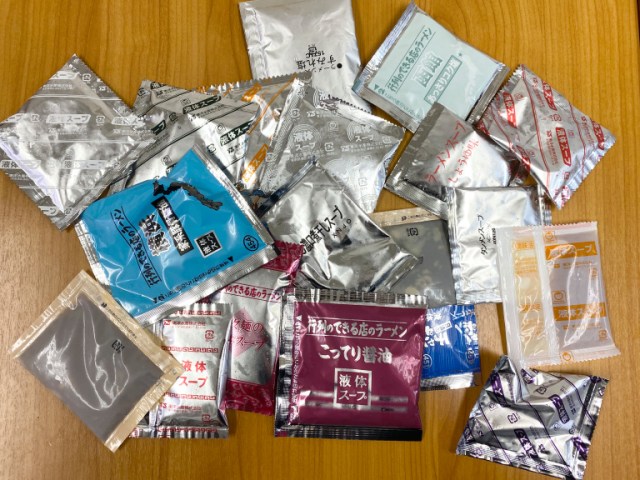
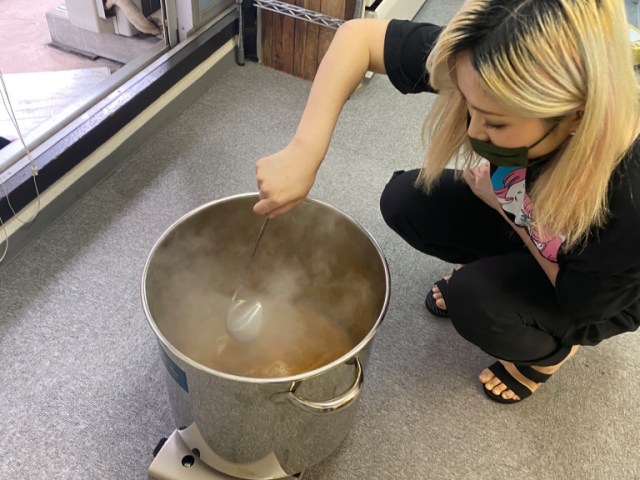
The smell was incredible…incredibly good! With each stir, a rich and enticing aroma wafted up towards Ikuna.
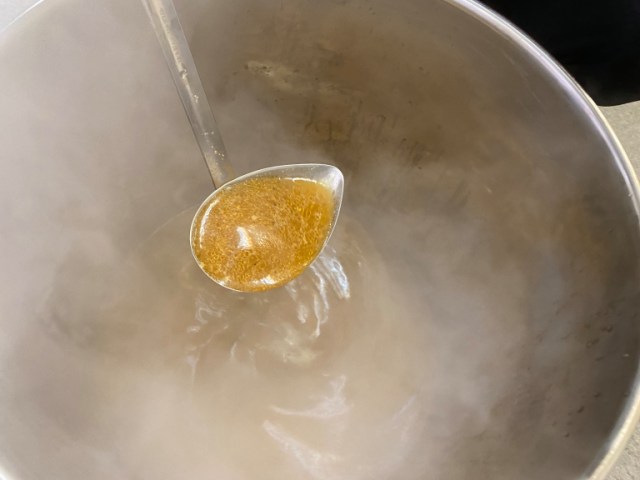
Unable to resist, she tasted the super broth, and impressions were:
“This is no-kidding delicious. The first sensation is strong miso. Soy and fish stock come after, but while they’re a little late to the party, they make sure to make their presence felt. The finish has just a fint touch of tartness, probably from the tomato ramen broth.”
Now, while making the super broth was definitely crazy, it was also pretty simple. Things got a lot trickier with the noodles, though.
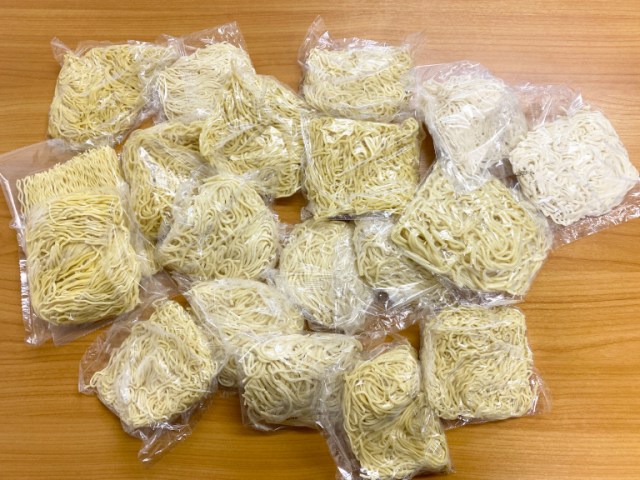
See, not only do different individual types of ramen have different types of broth, they also have different kinds of noodles. Some are thick, and some are thin. Some are straight, and some are wavy.
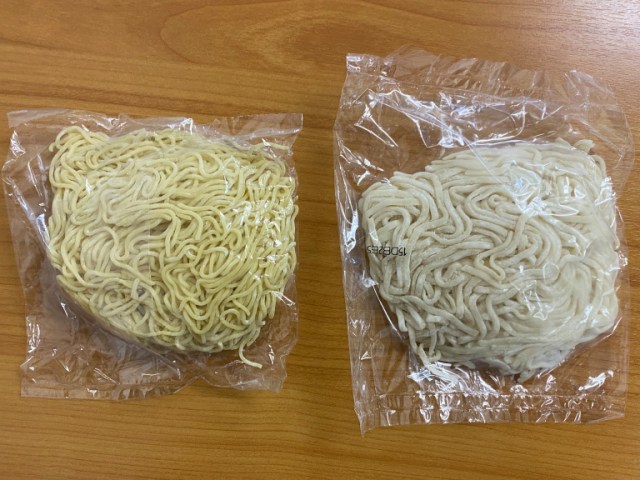
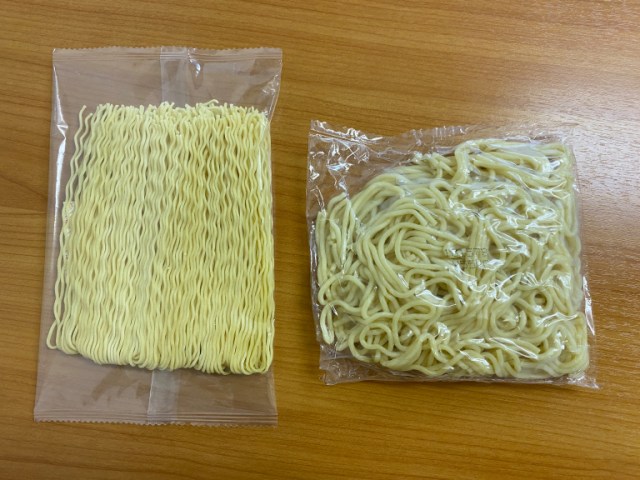
This, in turn, means that they’re supposed to be cooked for different amounts of time. We don’t have 19 different pots in our kitchen, though, or 19 different burners, so in the end we just tossed them all into a pot together and cooked them like one big family of noodles before combining them with the super broth.
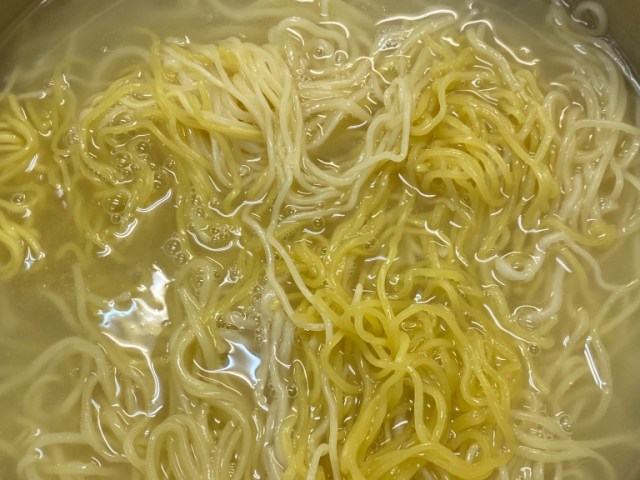
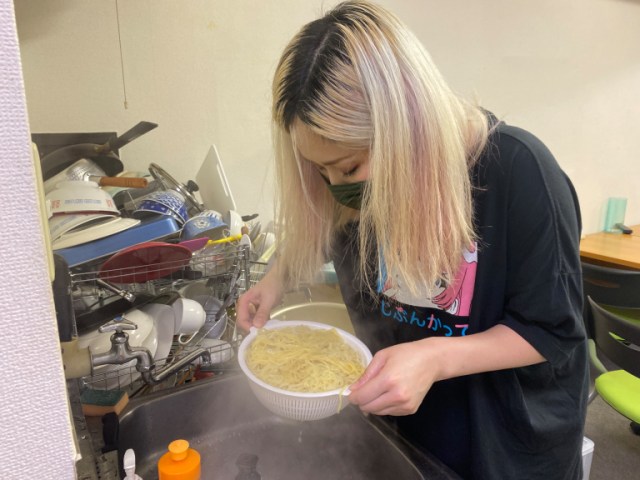
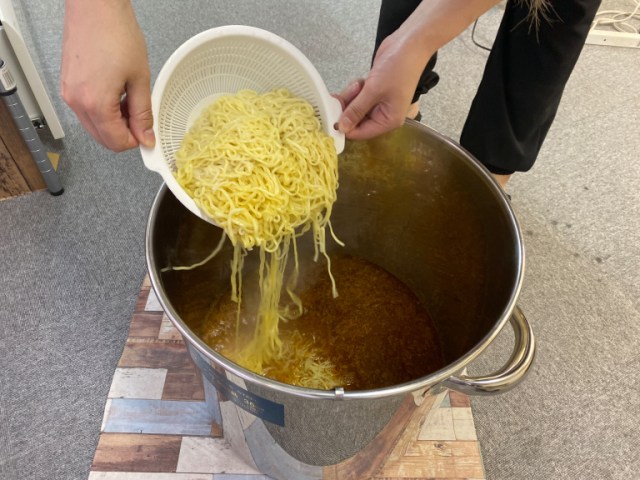
You’ll notice, though, that we said “one big family of noodles,” and not “one big happy family of noodles.” While we tried to find a middle ground for the noodles’ cooking times, we still ended up with some types that were undercooked and too firm, while some others were soggy from having been cooked too long.
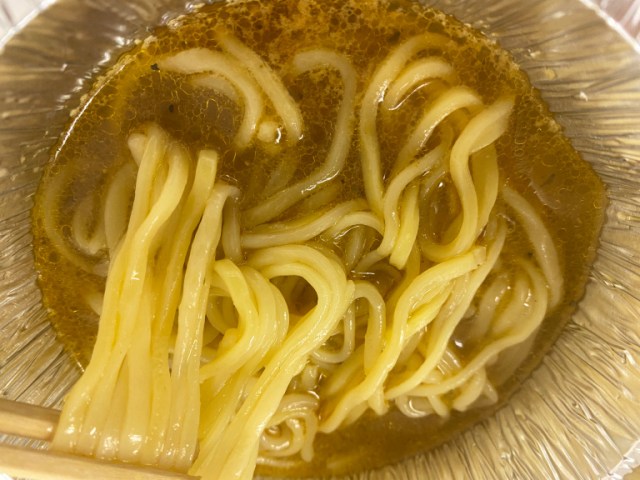
The end result was some pretty discordant mouthfeel, as we got a whole bunch of textures in every bite. For some of our taste-testing panel, it brought back memories of the ramen they’d eaten in school cafeterias and highway rest stops, where the noodles are often mushy from having sat around for a while after cooking if you’re being served at the tail-end of a batch, or maybe half-raw if the cook is trying to get a large number of people fed as quickly as possible.
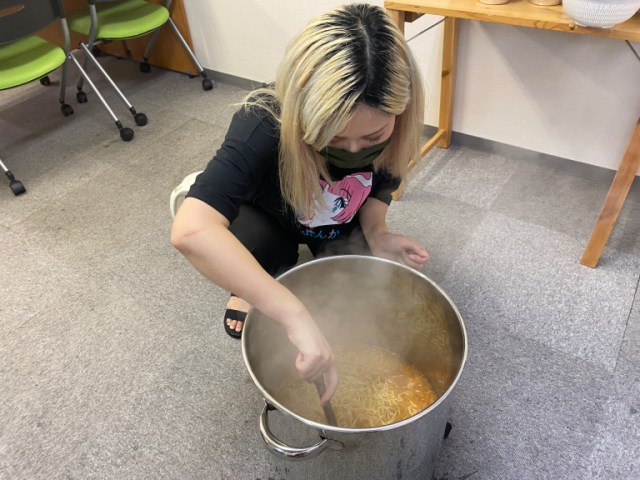
Still, Ikuna believes there’s plenty of potential for the super broth. Maybe the trick is to make a smaller batch of more uniform, or at least simmilar, noodles, so that they’ll cook more evenly? That would leave you with a lot of leftover broth, but you could always freeze whatever amount you don’t use, then thaw it out and heat it up the next time you’re craving a dozen-plus types of ramen flavors all at once.
Photos © SoraNews24
● Want to hear about SoraNews24’s latest articles as soon as they’re published? Follow us on Facebook and Twitter!

No hay comentarios:
Publicar un comentario